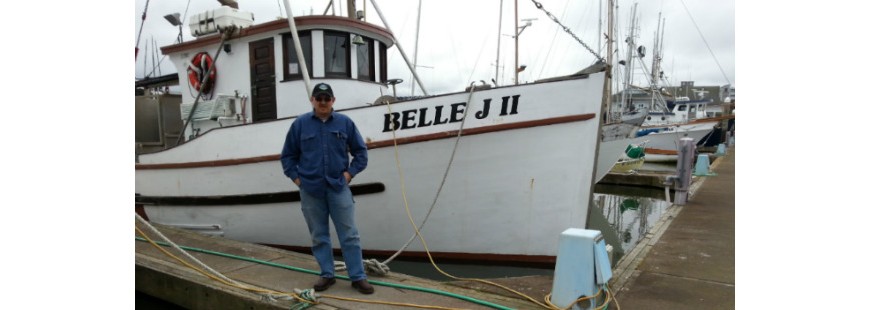Take your life savings and put all of it into a boat and permits and gear and faith. If you’re like some you’ll put the gear in the right spot, have three bonzer seasons in a row have the boat paid for, a new truck, and big down payment on a bigger house. That’s the dream. It can happen, but right now it’s unlikely.
Why? Because the environment is a complicated system. There could be infinite variables that affect the number of fish ending up on the back deck. And those variables are starting to change in ways we’ve never seen before. So even, if all your gear and boat and permits are stacked like ducks in a row, it is still uncertain that a guy will make the cut.
And then throw in California water policy that makes west coast salmon fishing a crapshoot.
Water Combat and a Salmon Future
A lot of guys here in California fish two main fisheries: salmon in the summer and crabs in the winter. As most folks know, salmon are probably the mostly hotly contested fish out here, because the fight over salmon is really a fight over fresh water.
I have to hand it to the guys in the salmon business ahead of me. They’ve done a hell of job fighting the water barons and bad policy makers that try to take every drop of water from salmon streams to irrigate nut trees. We still have some salmon thanks in no small part to PCFFA’s Zeke Grader and so many of his cohorts. But even with all the ongoing efforts, all the energy spent, the water wars continue and we enter every salmon season with uncertainty.
This last summer the ocean was hot off the west coast. California’s drought was in its fourth year, and the water wars had really heated up. The salmon were scarce. So were fish checks.
Throw in the Realities of Climate Change
Now meet the offspring of all that hot water, a little plankton critter, named Pseudo-nitzschia. That’s the genus of a whole group of naughty little diatoms that grow in all the oceans on earth every year in small doses. They are a normal part of the food chain. Allow nature to give them an extended growing season though, and well, things can get a little interesting.
Pseudo-nitzschia and their gazillions of cousins reproduce and add to a plankton bloom of epic proportions, and now there is an excess of them being eaten and throwing the food chain a little out of whack. When they’re consumed, they introduce a toxic substance, domoic acid, into the food chain at higher than acceptable levels.
Delayed Season, Uncertain Start
This domoic acid has now put California’s crab fisheries on hold. While the scientists’ don’t know the purge rate in nature, they know a little about purge rates in a clean lab setting. That data isn’t incredibly reassuring. As I write this, no one has an idea when we’re going fishing. So… more uncertainty.
Now for some certainty: the fishing industry doesn’t like shut downs. We don’t like being on the sidelines for anything. If they close us entirely, our winter income is at risk. Most of us just came off a crummy salmon season, right?
But the one thing domoic acid has brought to the attention of the public and decision-makers is that your domestic seafood industry has the intent and the wherewithal to put safe, healthy seafood on your plate. None of us have any interest in going fishing until the product is safe. Our little buddies Pseudo-nitzschia can mess up a season and cause a lot of grief, but my gear isn’t going in the water until the crabs I bring to town are safe to eat.
What Do We Do?
While fishermen and fish buyers alike want to get the crab season going without a hitch, we both know that is not likely. Yes, the state Fish and Wildlife Department made it official to not fish crab. The fishing industry supports the delay. Our neighbors, friends, family, and customers around the world enjoy those crab, and it would unconscionable to put people at risk. So we won’t. That is a certainty.
It’s pretty simple for this fisherman: I fish as hard as I can to put food on my family’s and my community’s tables. But I can’t fight the fact that nature, and policy makers who try to harness it, are beyond my control. So I deal with fishing restrictions as they come along. I strive to bring the best possible product to market. And I support any effort to make certain that the fleet and I have a fishing future.



Great article, thanks. New studies show that toxic algal blooms can be exacerbated by ocean acidification (30% of carbon released into atmosphere is absorbed by ocean, causing devestating effects, particularly on the west coast). The real threat to fishermen is multi-stressor scenarios like we’re seeing now: where ocean warming, acidification, nutrient pollution, algal blooms, etc all combine to make marine critters more vulnerable; leading to disease, toxicity, migration, or just plain death. Like one UC Davis author of a study on multi-stressor scenarios said: “you might go to work if you had a toothache. But what if you had a toothache, the flu, and a broken leg? At some point, multiple stressors will cause natural systems to break down.”